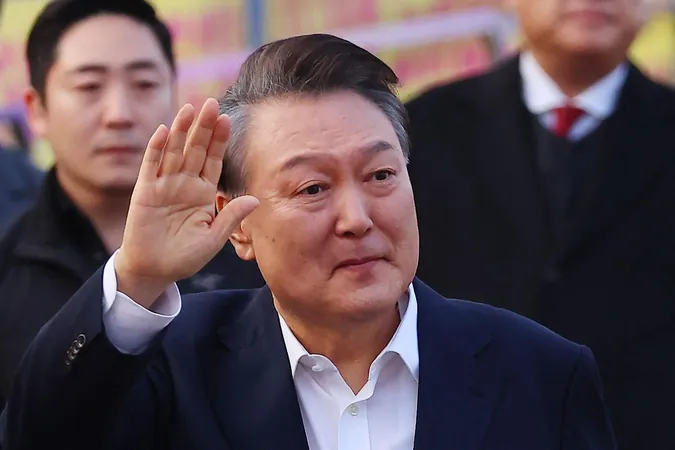
South Korean President Yoon Suk Yeol Officially Ousted Following Historic Impeachment
2025-04-04
Author: Nur
Historic Impeachment of President Yoon Suk Yeol
In a landmark decision, the Constitutional Court of South Korea has upheld the impeachment of President Yoon Suk Yeol, leading to his immediate removal from office. The ruling, delivered on April 4, confirmed that Yoon's actions on December 3, 2024, in declaring martial law were unconstitutional, sparking intense political turmoil in the nation.
Martial Law Declaration
The court determined that Yoon's martial law decree, which was quickly overturned by the National Assembly, constituted a grave violation of the Constitution. Yoon was accused of overstepping his powers, as martial law is typically reserved for genuine national emergencies or wartime scenarios. The court's unanimous ruling stated that Yoon had 'abandoned his constitutional duty' and betrayed the public's trust, marking a definitive stance against his administration's actions.
Upcoming Presidential Election
With Yoon ousted, South Korea must now hold a presidential election within 60 days, presumably by early June. Lee Jae-myung, the leader of the opposition Democratic Party, is currently leading in opinion polls as the most favored candidate to succeed Yoon. This development signals a shift in the political landscape, with a distinct potential for the liberal party to regain control.
Yoon's Defense and Claims
During the proceedings leading up to the impeachment, Yoon characterized the move as a political strategy by the opposition to unseat a democratically elected leader. He defended his decisions by saying that declaring martial law was meant as a desperate measure to rally public support rather than to suppress dissent.
Future Plans and Legal Challenges
Amidst the chaos, Yoon has suggested that he would transfer domestic governance to Prime Minister Han Duck-soo and focus instead on constitutional reforms and foreign policies. Despite these assertions, the former president now faces separate charges of insurrection related to his controversial martial law declaration, with trial proceedings set to commence on April 14.
Significance for South Korean Democracy
Political analysts are viewing Yoon's impeachment as a significant moment for South Korea's democracy. Hahm Sung-deuk, a professor of political science, noted that this action reinforces the idea that the rule of law prevails over partisan interests, emphasizing the importance of democratic values.
Public Sentiment and Reactions
Public sentiment has been divided, demonstrated by massive rallies both supporting and opposing Yoon's impeachment prior to the court's ruling. Recent surveys showed that 60% of South Koreans favored his removal and a majority indicated a desire for a governmental shift from Yoon’s ruling People Power Party towards the Democratic Party.
Security Measures in Response
As South Korea navigates this turbulent political chapter, the repercussions of President Yoon's impeachment may redefine the future of its governance and deepen the nation’s democratic foundations. With potential unrest on the horizon, law enforcement has ramped up security measures throughout Seoul, preparing for any fallout from this historic decision.





 Brasil (PT)
Brasil (PT)
 Canada (EN)
Canada (EN)
 Chile (ES)
Chile (ES)
 Česko (CS)
Česko (CS)
 대한민국 (KO)
대한민국 (KO)
 España (ES)
España (ES)
 France (FR)
France (FR)
 Hong Kong (EN)
Hong Kong (EN)
 Italia (IT)
Italia (IT)
 日本 (JA)
日本 (JA)
 Magyarország (HU)
Magyarország (HU)
 Norge (NO)
Norge (NO)
 Polska (PL)
Polska (PL)
 Schweiz (DE)
Schweiz (DE)
 Singapore (EN)
Singapore (EN)
 Sverige (SV)
Sverige (SV)
 Suomi (FI)
Suomi (FI)
 Türkiye (TR)
Türkiye (TR)
 الإمارات العربية المتحدة (AR)
الإمارات العربية المتحدة (AR)